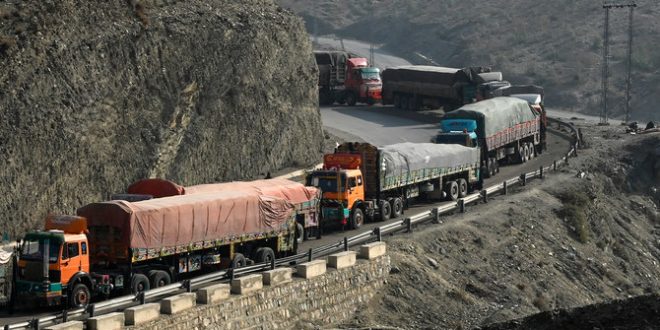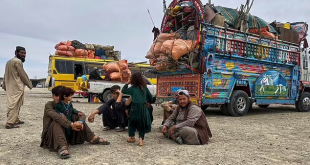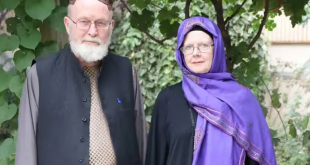AT
Kabul: Recent agreements between Pakistan and the Afghan administration in Kabul highlight a nuanced dynamic of security concerns, economic aspirations, and regional competition. Despite recent tensions, including cross-border airstrikes and retaliatory fire, both sides are prioritizing trade cooperation. A Pakistani delegation, led by Commerce Secretary Muhammad Khurrum Agha, engaged with Afghan Commerce Minister Nooruddin Azizi in Kabul, underscoring efforts to address trade challenges and foster economic ties.
The two countries agreed on the “separation of business from politics” and to pursue “uninterrupted” trade activities, said Zabihullah Mujahid, the Taliban administration spokesman. Echoing this sentiment, Pakistan’s Foreign Ministry expressed encouragement over the “progress made on these issues.”
Despite Pakistan continuing to stand as the largest importer of Afghan goods, amounting to $369 million in 2022, there has been a significant decline in bilateral trade volume over the past five years, from $2.3 billion to $1.4 billion, according to the state-run Trade Development Authority of Pakistan.
Pakistani exports are dominated by textiles, pharmaceuticals, food items and construction materials, mainly cement. Afghanistan primarily exports fruits, carpets and minerals like coal, marble and gemstones.
The two-day discussions held on March 25 to 26 focused on key areas like establishing a preferential trade agreement, facilitating the movement of air cargo, enabling 24/7 operation of border crossings for trade and addressing challenges related to trade that transits through Afghanistan and to Afghan goods that pass through Pakistani ports, according to Mujahid.
Following a cross-border attack by the Tehreek-e-Taliban Pakistan (TTP) on Pakistani security forces in October, Pakistan imposed several trade restrictions on Afghanistan. These restrictions included a ban on essential transit trade items, a 10% import fee and requirements for bank guarantees equal to duties and taxes from Afghan importers.
The abrupt implementation caused significant disruption, with over 3,000 containers of Afghan traders’ goods stranded for weeks at Karachi’s port, incurring substantial fees over the delay. “These charges, typically ranging from $120 to $160 per container per day, had placed a heavy financial burden on Afghan businesses,” Haji Gul Zada, a Kabul-based trader, told Nikkei Asia.
Pakistani officials, however, argued that the restrictions were part of a broader anti-smuggling campaign due to U.S. dollar losses and economic challenges.
“Pakistan has lost millions in taxes due to goods being sent duty-free to Afghanistan and then smuggled back across the border,” said Muhammad Junaid, an official at Pakistan Customs in Karachi.
 Afghanistan Times
Afghanistan Times




